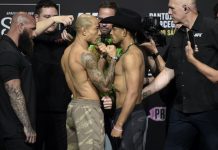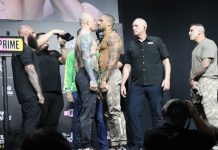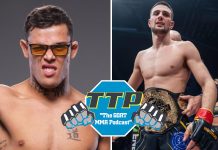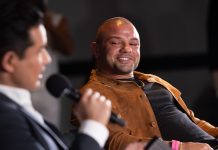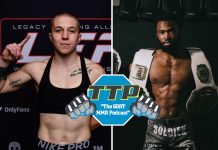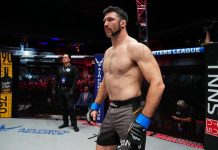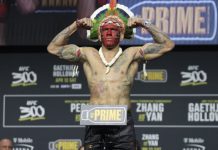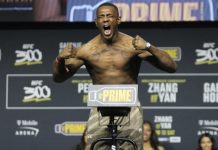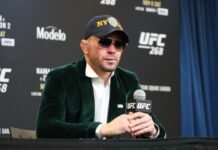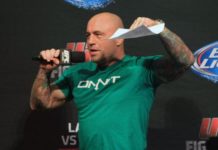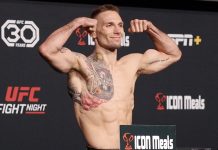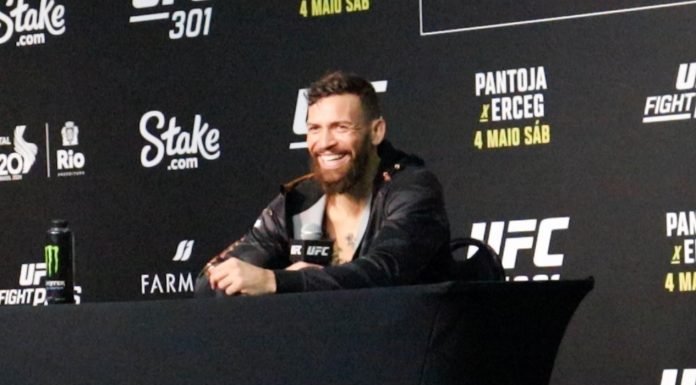Greg Hardy:
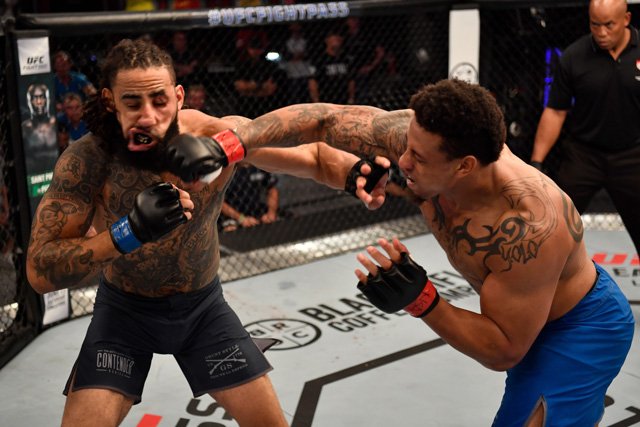
Standing now with a record of 5-1 (1NC), Greg Hardy has been one of the most controversial fighters the UFC has signed and actively promoted over the past few years. To understand why we need to take a look at his past.
In 2014 Hardy was arrested for assault and communicating threats, after he was alleged to have assaulted an ex-girlfriend by grabbing her, throwing her into furniture, strangling her, and threatening to kill her. Later he was found guilty and was given 18 months’ probation. After that Hardy appealed, opting for a jury trial and as the victim failed to appear in court to testify, the prosecutor’s office dismissed the charges, citing their inability to locate the victim, and “reliable information” that the two parties had reached a civil settlement.
Now the only thing that clearly comes out of the matter is that Hardy was guilty of domestic violence, but didn’t face the bare minimum legal consequences for it, based only on the victim failing to appear at the second trial. And potentially paying off that victim.
Hardy has never really shown any remorse for his actions. So when the UFC signed him they sent a very strong message, and the way they have reacted so far, one can only assume that it was a conscious effort.
The symbolism of Hardy:
“Symbolism is the language of the mysteries. By symbols, men have ever sought to communicate to each other thought which transcends the limitation of language”- Manly Hall
Though the above quote was made in an altogether different context, I want you to keep it in mind to explore the relationship between Greg Hardy and the UFC. Hardy wasn’t the first athlete with a history of domestic violence that the UFC has seen, starting from Rumble Johnson to Abel Trujilo multiple fighters in past have faced similar charges. Hardy is, however, the highest-profile athlete signed with a known history of domestic violence. Compare that to Will Chope: in 2014, Chope was released by the UFC after his bad-conduct discharge from the U.S. Airforce came to light.
However, the core difference between these other fighters and Hardy is that these fighters were never really popular beyond the bubble of MMA and their cases, most of the time, weren’t known beyond the hardcore fans. Hardy’s not only popular, but his case was extremely high-profile. The images, documents, and news reports of his case are still readily available online. When the UFC as an organization completely ignores that and engages in business with the man, the message they send is that they don’t care.
“There are many levels and layers to domestic abuse, But in terms of physical abuse, his [alleged offense] was fairly severe. It involved strangulation, which is one of the major red flags for potential homicide. That was the report to police officers and testimony in court. And there are some pretty horrible images of her injuries.”
–Kim A Gandy, CEO and president of the National Network to End Domestic Violence.
Essentially, they don’t care who their fighters are outside the cage. That’s the message. If you’re an abuser, you still have a legit shot in the company. If you draw well enough. That not only validates his actions, but also promotes them in an indirect way. Because Greg Hardy would not have the notoriety has has today, were it not for his arrest and initial conviction. Worse, it opens the doors for others. The next time a fighter who’s had a history of domestic violence is signed and someone raises questions about why is eligible to compete, the community as a whole will just point towards Hardy. “If Greg Hardy, whose domestic violence case was so widely covered, can fight, hen why not this person?”
The UFC is one of the most popular MMA organizations of the planet, to the point that people often confuse the sport with the promotion. If they are willing to set this standard, other organizations are going to follow their lead. The continued employment of Hardy serves only to make the sport more domestic-violence tolerant.
The second chance:
Before we move on to connecting Greg Hardy with the marketing of misogyny, we need to address the phrase “a second chance.” Since the day Greg Hardy was signed the one argument being repeated over and over again was one about whether or not a person accused of domestic violence deserves a second chance at life.
The answer is yes. Of course, there’s more to it than that. Domestic violence is one of the most complex issues plaguing our society. There are several layers to the problem. Starting from patriarchal pressure to mental health to fits of rage to other innumerable causes, there can be multiple reasons for a violent altercation between couples. However, for one to be given a second chance, there needs to be some kind of acknowledgement of the fact that there was a severe mistake made in the first chance.
“I watch Greg Hardy hit grown men and make them limp as a noodle in seconds. If he had any malice the night of this alleged incident, the woman would be dead.”
– Billy Padden, Greg Hardy’s coach
The core of the problem with Greg Hardy lies here — his refusal to accept the fact that what he did in his “first chance” was wrong. As he’s using an international platform to promote himself, if he doesn’t come out and state clearly that his actions were wrong, then he validates his behaviour.



